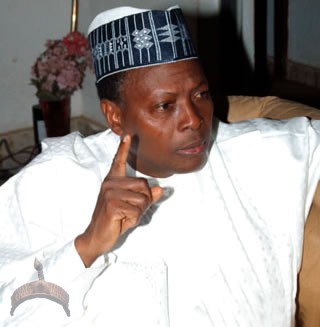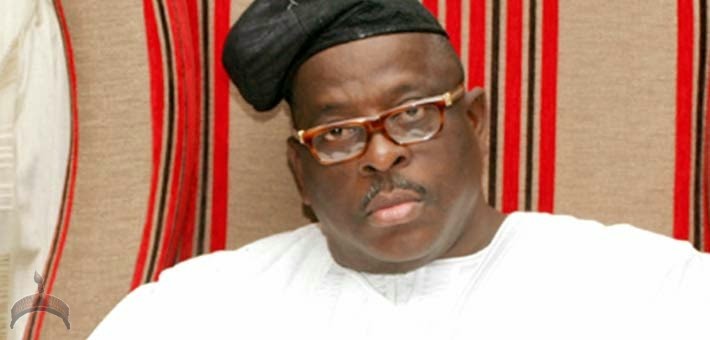Airtel Networks Limited wishes to inform our customers and the general public that the prevailing situation in the country regarding the scarcity of diesel and other petroleum products is presently impacting negatively our commitments to delivering best-in-class quality of service and seamless telephony experience to all Nigerians.
While we are currently doing everything within our means as well as going the extra mile to ensure that all our base stations and switches are up and running, it is sad to note that it is becoming increasingly difficult to replenish current stock of diesel due to the lingering scarcity of the products.
We are also concerned that, if the situation persists, it may have adverse effects on our network, impacting both voice and data services.
Airtel, therefore wishes to assure all customers that we will continue working with all our partners and stakeholders to mitigate any negative impact as we remain committed to our promise of providing exceptional services just as we seek the cooperation and understanding of all whilst apologizing for any inconvenience at this time.
Nigeria's no 1 blog for latest Nigeria Property, Nigeria House,Private Property Nigeria, Real Estate Nigeria, Lagos Island nigeria, lekki lagos real estate, arable farming land nigeria, Land for sale, to let,for sale and for rent.
Sunday, May 24, 2015
Airtel releases statement, says fuel scarcity is affecting their services
Photos: Beyonce wows in Ankara fabric
.


The artist looked exquisite wearing Ankara fabric in new photographs she shared on her instagram page..
Ifeanyi Ubah’s Capital Oil to release 13 million litres fuel tonight
Ifeanyi Ubah’s Capital Oil and Gas released an announcement tonight saying it is releasing 13 million liters this night, which is around 400 trucks of petroleum products to facilitate the fuel shortage that Nigeria is as of now facing.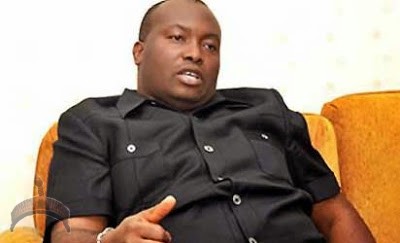
They said they will discharge an extra 53 million liters in a couple of days.
Read the statement below…
On Saturday 16th May 2015, we received an SMS ordering the suspension of loading activities in all depots from Monday 18th May 2015. We later realized that this directive was as a result of unpaid funds owed to transporters by oil marketers who in turn are owed by the Federal Government.
This development has resulted in immense hardship to our fellow country men and women. We believe that a better solution can be pursued towards solving this problem in a way that does not adversely affect our dear citizens. Capital Oil and Gas has watched with so much pain, the suffering and hardship our citizens have been subjected to as a result of scarcity of petrol, diesel, aviation fuel and house hold kerosene.
We are deeply pained to hear that hospitals cannot perform surgeries, laboratories are unable to carry out much needed tests especially for emergency patients leaving such patients at risk of dying, radio stations are shutting down, communication is being affected as MTN and other telecommunications company have announced an impending shut down while homes, offices and key facilities nationwide are experiencing blackouts. In some parts of the country, petrol is already selling at an all-time high of N1,000 per litre.
Our citizens have left their homes and are now sleeping in fuel stations,facing the risk of robbery attacks and other attendant risk. In a few days’ time, a new government headed by General Muhamadu Buhari will be sworn in. Apart from our citizens being unable to watch the handover on television and unavailability of transportation for attendees of this historic handover, the resulting chaos from this scarcity may shutdown the Nation and sabotage the efforts Nigeria has made to attain greater heights.
We are constrained at this point and have decided that two wrongs cannot make a right. We will not be part of this sabotage against our fatherland. Therefore from this minute, we shall take the risk of opening our facilities and commence swift loading and distribution of products Nationwide. Our facility has the capacity to load over 13 million litres of product before dawn.
This comes to approximately 400 trucks of petroleum products. With this act, it is our belief that once again our citizens will begin to smile, return to normal family and work life. We call on other petroleum marketers to follow suit and save our Nation from this impending economic and social crisis. This is a period that requires patriotism and service to fatherland. Let’s join hands to help our fellow citizens and save Nigeria. We also call on striking bodies to call off the strike action. Let us work together for the betterment of our people. As we brief you this moment, our truck park, port reception facilities and our depot complex have been ordered opened.
We are ordering and resuming discharge of products from vessels at our berths. We have ordered our trucks to commence loading of products and move overnight to every state of the Federation. Most importantly, we wish to use this medium to thank NNPC and PPMC for their steadfastness in ensuring the availability of petroleum products. Current PPMC stock level in our storage tanks and buffer stock on vessels awaiting discharge at our jetty is capable of meeting the Nation’s need for 15 days. Furthermore, we wish to emphasis that we have a total solution to the traffic menace on the oshodi apapaexpressway.
In the coming weeks, we hope to engage the Federal Government (Federal Ministry of Transport), Lagos State Government and other stakeholders in the affected area, to optimally utilize our truck park facilities which has the capacity to accommodate over 1,100 trucks per time and 5,000 on a shift basis. Capital Oil and Gas continues to appeal to Nigerians to accept and support deregulation as this will curb corruption, enhance competition, lead to reduction of pump price for petroleum products and ensure constant supply to meet Nigeria’s demand. Long live the Federal Republic of Nigeria.
Dr. Patrick Ifeanyi Ubah
Managing Director/CEO Capital Oil and Gas Industries Limited Lagos,
Sunday 24th May 2015.
Did David Cameron downgrade Buhari In This Pic?
This is one part of the meeting between the President Elect of The Frederal Republic of Nigeria Gen. Muhammadu Buhari and the British Prime Minister David Cameron many Nigerians wouldnt like to see.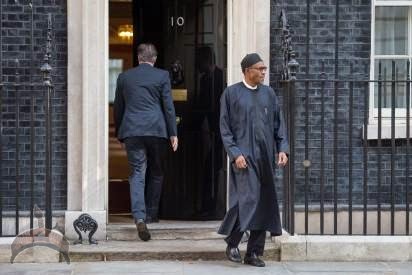
Prior to the meeting , Buhari was seen alone waiting tight for nearly to 30 minutes before he had admittance to The Prime Minister who after the meeting ,walked the next Nigerian President to the entryway and quickly turned back and left. Leaving Buhari stranded
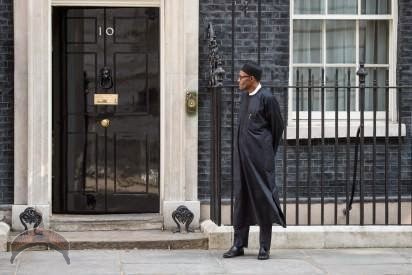
Why President-elect Buhari refused a Rolls Royce from Nigerian High Commission in the UK
On his entry in London on Friday, Nigeria’s President-elect, General Muhammadu Buhari stunned Officials of the Nigerian High Commission when he declined to make utilization of the Rolls Royce and different offices offered him by the Commission.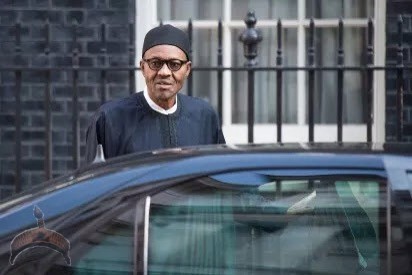
It was gathered that subsequent to exchanging pleasantries with the High Commissioner, Dr Dalhatu Tafida and his staff, the president-elect was uncomfortable with the quantity of extraordinary autos in the caravan. He graciously let them know that his visit was entirely private and he had made plan for everything his needs.
He from that point said thanks to them and left the air terminal in a less ostentatious auto.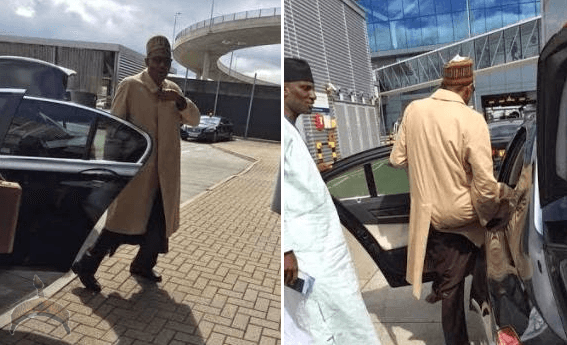
Highest level of unemployment in addition to massive corruption, History'll not favour GEJ— Junaid Mohammed
Convener of the Coalition of Northern Politicians, Academics, Professionals and Businessmen, Dr. Junaid Mohammed, in this interview with TOBI AWORINDE, evaluates the government of President Goodluck Jonathan.
What do you think are the highlights of President Goodluck Jonathan’s administration?
I believe, for most Nigerians, the highlight of Jonathan’s administration is the heightened terrorist activities in the country. Another is the enormous corruption, which, even by the standard of Nigeria, is unprecedented. There has never been any government in this country as corrupt, indolent and irresponsible as this government. Also, for a nation which has so many ethnic groups, religious differences, and identities, one was expecting a measure of inclusiveness. Unfortunately, Jonathan and his cabal are the most divisive set of people to have been at the top of an administration in this country.
Frankly speaking, I can’t think of anything I would regard as a positive highlight. Everything that I can think of, which I consciously or otherwise associate with this President, is terribly negative. I hope I am not disappointing you, but I have nothing positive to say about the government.
Why is corruption believed to have thrived under Jonathan’s administration, despite the checks and balances that the constitution provides?
Checks and balances only work if they are being applied to control political will. It requires a measure of sincerity for him to use the checks and balances in order to tackle corruption. Clearly, the institutions are there. Clearly, most of the checks and balances are there. But as we see, the tragedy of Jonathan and his administration is that they have nothing but contempt for Nigerians and the institutions that make up Nigeria. So, he feels he can play with everybody’s intelligence. If you are caught involved in some malpractice and you happen to be one of his favoured people, he would say, ‘No, you are not corrupt; maybe you did a little bit of stealing.’
As you mentioned, there have been several allegations of marginalisation under Jonathan, especially by the South-West and the North. What is responsible for this?
There have been deliberate efforts to marginalise certain sections of the country. The background that somebody comes from, his culture and certain things that make him tick clearly influence whatever he does: good or bad. For example, I lived in Port Harcourt for four years as a federal commissioner. I noticed that within the same broad South-South zone, there are some people you can regard as conceited. They believe that apart from their village, settlement or creeks, there are no other people who live elsewhere. I suspect that is the same attitude Jonathan has; that apart from the Ijaws, there are no other human beings and that what is uppermost in his mind is that Ijaws must be gratified or favoured in everything. Where he cannot get Ijaws, he looks for other people from the South-South, or preferably from the Igbo. Therefore, if you come from that background, it is always safe. If you have no consideration for other people other than your own, it shows. I believe that it was a tragic mistake that we had to end up with this kind of character as a president because he is so unilateral in everything he does. I don’t see how that kind of person can successfully govern a country of almost 300 ethnic groups and do justice to all. He hasn’t done that; he has failed woefully and I am not surprised that he has. Don’t forget that he worked directly under me when I was at the Oil Mineral Producing Areas Development Commission. Therefore, I know a little bit about him even before he became the acting president.
Are you saying the South-South ganged up with the South-East to marginalise other regions in the country?
If you compare man for man, the South-West has more people that are better educated with university degrees than the entire South-South. But when you look at the protocol list of the top 20 officials in the country, from the President downwards, there is only one Yoruba man. I am not trying to incite any unnecessary fears, but if all the appointees were chosen based on merit and there was no qualified Yoruba person who could be in that group of 20, I am prepared to concede. But the fact of the matter is that for every one out of those 20, there are thousands of Yorubas who are qualified but were not appointed. If you don’t call that marginalisation, then I don’t know what it is. You can make an excuse that maybe northerners like me are not educated. That was what Edwin Clark said until he had to admit at the National Conference that he was mistaken and he had become aware that the governors were also educated.
The reality is that there was a deliberate machinery set in motion to alienate certain sections of the country; the entire North and the South-West were particularly singled out for marginalisation and, to a large extent, that succeeded. Look at the economy, for instance; it is headed by a woman who started her career as a geographer that was bundled up and shipped to Nigeria to be made Minister of Finance and Coordinating Minister of the Economy. The Governor of the Central Bank of Nigeria is an Igbo man. Within the CBN, there is an agency called the Assets Management Company of Nigeria. For the most part, it has been headed by Igbo men. The Nigeria Economic Summit Group is also headed by an Igbo man. The Securities and Exchange Commission, until two months ago, was headed by an Igbo woman. The Manufacturers Association of Nigeria has been headed by an Igbo man.
If you look carefully, you will notice that the movers and shakers of the national economy are Igbos, and not because they are the best or the brightest, but simply because they could not find Ijaw people. Now that this so-called Coordinating Minister of the Economy has driven the economy into a ditch, we are being confronted with economic disaster for which every Nigerian, whether Igbo or non-Igbo will pay a price. We now have the highest level of unemployment in the history of this country, in addition to corruption.
Economic experts have repeatedly called for a diversification of the country’s economy. Do you think Jonathan’s government has done enough in the agricultural sector to reduce the country’s reliance on crude oil?
In all fairness, it takes a while to diversify the economy. Any talk of diversification of the national economy will have to focus on royalties or tangibles, as they say. How many people are employed in the oil sector today, compared to the number of people who are employed in the agricultural sector? Yes, oil contributes substantially to our earnings in foreign exchange. But in terms of gross domestic product, agriculture is still ahead of oil and it is the mainstay of the economy. I don’t know the latest, but when I was involved in the industry up to five years ago, I knew that the total number of people employed in the oil sector was not more than two to three million. And till now, over 60 per cent of employment in the makings of the national economy is based on agriculture. Whether we like it or not, it is agriculture that will have to be diversified for our economy to be called a diversified and balanced economy.
Secondly, it takes time to diversify any economy and when you look at oil on one hand and agriculture on the other, the two are miles apart. There is no connection between oil and agriculture. If anything, wherever you have oil exploration activity, it has the effect of destroying our soil and you cannot engage in agriculture without an enabling environment, in terms of land and water. For anyone to talk about diversification of a nation’s economy, he has to have a long-term view. It is not something a politician can do easily because if he gives himself a timeline, it would be a serious mistake. The process of diversification has many linkages and unless those linkages are understood, explored and are sincerely connected, there can be no diversification. This government has made a lot of noise about diversification of economy, but you don’t develop agriculture by making a noise about it.
What should Jonathan have done differently in tackling insecurity?
There is one word for it: merit. Since he came to office, every single key appointment in the Nigerian Armed Forces and the Nigerian security establishments like the State Security Service and the Police has been made on the basis of nepotism and corruption. For example, if you appoint an Inspector-General of Police for the purpose of manipulating elections, that is corruption. If you appoint Brigade Commanders, Battalion Commanders and General Officers Commanding, not on the basis of competence or professionalism, but on the basis of their ability to do their bidding and you then post them to areas where they will make money and perhaps, allow terrorists sponsored by the government to go scot-free, that is also corruption. If we had had the service chiefs we deserved, particularly in the Army, the situation of Boko Haram could have happened but certainly, it would not have risen to the ugly levels that we are witnessing. And I believe that if anybody is going to do anything about the security challenge, he is going to have to go back to the root of the problem.
How will Jonathan be remembered?
I don’t see him being favourably considered by history. But as far as I am concerned, he is already history. He will be remembered as the man who messed up security, the first president to be defeated in a reasonably free and fair election, and one whose government is the worst in terms of corruption.
I don’t give a damn what Obasanjo says about me — Ex-VP Atiku Abubakar
Former Vice-President Atiku Abubakar, in this interview with NIYI ODEBODE, JOHN ALECHENU and ADE ADESOMOJU, speaks on the expectations of Nigerians from the incoming administration of Maj. Gen. Muhammadu Buhari (retd.), his perception of former President Olusegun Obasanjo, among other issues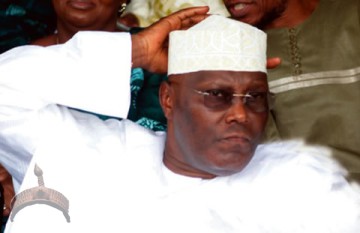
The President-elect, Maj. Gen. Muhammadu Buhari (retd.), has acknowledged the fact that expectations of Nigerians from him are very high. How do you think he can meet these within the next four years?
Whenever there is a change in government in a democracy, whether in Nigeria or anywhere else, normally the expectation tends to rise. It is not unexpected in Nigeria, particularly when this is the first time in our democratic process that we are witnessing a smooth change in government from the ruling party to an opposition. Therefore, expectations are much higher within the normal circumstance of change.
After several shots at the presidency, will you still present yourself if the opportunity avails itself to you again?
It is quite too early for such a question. We are in a transition process. We have not even formed the next government. You are asking me whether I will like to run again or not. I think it is just too early. My concern is to make sure that the transition process is smooth and complete and a new government is formed because it is the party that I belong to that is coming in. My dream for Nigeria is always that we can, from time to time, change government so that there can be competition among parties and that competition will bring about, perhaps more development and progress in the country. I think that is my most important concern now rather than thinking of whether I’m going to run again or not.
Why is it taking your party so long to decide on zoning?
I think that is one fundamental thing Nigerians tend to forget. There is no zoning in the constitution of the All Progressives Congress. In the true sense of it, there is no zoning. But we also know that this country is between North and South, Muslims and Christians. It is a multi-ethnic, multi-religious country; hence there is the need for balance of government appointments. We are not unaware of that. In the strictest sense of it, there is no zoning in the APC’s constitution. It is in the Peoples Democratic Party’s constitution and it has a long history. Those of us who were in the Constitutional Conference of 1994, 1995 actually initiated it.
What are the pitfalls the APC must avoid to steer clear of the fate that befell the PDP?
There are quite a few and fundamental ones that I will urge the APC government to avoid. Firstly, the political party should be allowed to freely operate on its own so that the issues of governors and the president being the leaders of the party and also the leader of government can be separated. It is only when one does that that internal democracy is allowed to thrive within the political party. Internal democracy is the building block, but when one mixes the two (leadership of political party and that of government), then one will find oneself where the PDP has found itself in the last 16 years.
Secondly, the governors and the president must be focused on key fundamental issues of governance. If they want to make an impact, for instance, in the first 100 days, three months, six months, as the case may be, they have to pick up certain key areas and also let Nigerians know that in the first 100 days, this is what you should expect from us. For instance, in my policy document, when I was running for the presidency, I said in the first 100 days, this is what you should expect from me. I think it will be necessary for the government to tell Nigerians that this is what you should expect from us in the first 100 days and so on.
What is your take on the prediction that the APC would be torn apart by the struggle for positions in the incoming government?
I don’t believe so. I think we have come across a number of challenges since the formation of the APC. I believe that government is not essentially an employer of labour. It should create the necessary environment for the private sector to create jobs. I think there is too much emphasis on government employment or government patronage in this country. This is because various levels of governance, whether local government or state, don’t function well. In other words, it is the failure of our institutions. If one goes to certain countries, one doesn’t find the president even having one visitor. For instance, I have visited my brother and friend, Jacob Zuma, several times. You don’t find even one single individual sitting with him and he goes out like a normal person because the institutions are working. The local councils are working. The provincial governments are working, everything is okay. Thus, whatever one is looking for at any level of one’s life is being provided for by the institution that is established to do it. Therefore, one doesn’t need the big man at the top. But unfortunately in this country, all our institutions are not working. They have been undermined. The constitution is very clear on that. But because the implementers of the constitution have not implemented the constitution as they should, the institutions are failing or have failed. Therefore, everybody looks up to the president to solve all the problems. No, that should not be. That is why we have local and state governments. Hence, I think we have to strengthen our institutions and make sure that they deliver services to their respective people.
The President-elect, like many other Nigerians, believes that corruption has reached an intolerable level in this country. Do you share the view that he (the President-elect) cannot achieve much in tackling the menace as he has promised because he is surrounded by many politicians that are also accused of being corrupt?
I think it takes political will to fight corruption. I have sat down with the President-elect and I believe he has the political will to do that. He told me clearly that anybody who is corrupt should not expect any appointment from his government and I agree with him. I also told him that if he really wants to cleanse this society, he should not make the mistake of trying to appoint anybody who is alleged or perceived to be corrupt and he can do that by making sure he gets the necessary information from the relevant government agencies. So, I believe he has the political will.
Apart from the area of appointment, what other specific areas must he explore to ensure that corruption is curbed?
Corruption has become so endemic in this country that any level of the society one goes to, it is present. Even in my house, my wife is always fighting with the drivers; fighting with the mechanic; fighting with the cooks. When she gives them money to do this or that, they do fake receipts and all that. Therefore, corruption is so endemic in the society, even in households. But then, if the political leadership provides the direction, the leadership and the will to fight corruption, one will find out that gradually we will be eliminating corruption and we will bring it to a minimal level. There is no society where there is no corruption, even in the advanced democracies there is corruption, but at a very minimal level. It is not threatening their progress as a country.
Still on corruption, you once said that you were one of the most investigated Nigerians. If the President-elect says, again, he is going to investigate the cases against you, will you be afraid or worried?
I’m not worried. You can investigate me. But you know most of my cases have ended up in the court up to the Supreme Court and the apex court has ruled on them. Thus, for you to reopen a case that has been closed by the Supreme Court … but I am ready to be investigated.
Before the general elections, President Goodluck Jonathan visited you. The picture that was being painted out there by his loyalists was that you gave a tacit approval for his second term bid. Can you use this opportunity to tell Nigerians what really transpired between the two of you at that meeting?
I have told Nigerians what transpired between the two of us. He wanted me to come back to the PDP and I said I was not coming back.
There is this story that the PDP is being repositioned and that the party is reaching out to you and Governor Rabiu Kwankwaso of Kano State. If the party leaders reach out to you, will you return to the PDP?
Nobody has reached out to me yet. And for the question of if I would go back or not; how many people will the President go to their houses to say, ‘This is the favour I want’ and they will look at him in the face and say, ‘No, we are not going back?’ How many in this country will do that?
Your former boss, ex-President Olusegun Obasanjo, said so many not-too-complimentary things about you in his latest book, ‘My Watch’. Have you both met since then?
You know, really, I don’t give a damn (about) what Obasanjo says about me.
You talked about South Africa working. Do you think that the concentration of power in the hands of the Federal Government is undermining the development of the country?
There seemed to be better service delivery by the government during the period we ran the regional government system. I had said that in my paper to the last Constitution Conference. I wrote a very comprehensive paper on that. I believe that the powers of the Federal Government are too many and there should be power devolution to the state and local governments.
Still talking about former President Obasanjo, do you think he scuttled the best chance you ever had to lead this country as president?
I don’t think so. How? When?
Your second term with him as Vice-President between 2003 and 2007 was stormy and he did everything to stop you from succeeding him as a result of which you left the PDP for the then Action Congress.
As far as I am concerned, Obasanjo may believe that he scuttled my presidential ambition, but I believe it is about God. If God says I will be president, I will be president; if He says I will not be president, I will not be president. Let’s forget about Obasanjo.
You chaired the privatisation committee and you did a lot in various sectors, including telecommunication, by laying the foundation. I can’t remember you handling that of power…
I refused to handle that of power.
Why did you refuse?
I refused to because I had a fundamental disagreement with the President (Obasanjo). He believed we should go left; I believed we should go right. He said I should become the chairman of the committee, I accepted. He inaugurated it, but I never sat. I allowed the Minister of Power then, Liyel Imoke, to sit. You can see that I was right because I told him what we needed was short-term, medium-term and long-term solutions to the power sector reform. He wanted to go for the long-term and up till now, we are not yet there. If we had adopted the short- term and medium-term solutions to our power problem, we would have been self-sufficient by 2005; even before we left office; because that strategy was planned for small and medium power stations in various parts of the country. We had even harvested international bids: people, who were prepared to come and invest $500m, $250m to set up small and medium -size power stations. By now, we would have been self-sufficient, but he said, ‘Oh, we must go gas’ and I said, ‘Gas? There is a problem. It’s long term; a lot of investments. There is instability in the region (Niger Delta). You must bring peace, before they would allow you to evacuate the gas. There is the issue of building the gas infrastructure, which takes a longer time and also a lot of investments and that I don’t see us even getting there in the next 10 years.’ But he said, ‘No, this is the way I want. We must go that way.’ I said, ‘Ok, fine, you are the President,’ and I declined to sit on the power committee till we left office. That is why when there was an investigation by the National Assembly; nobody invited me because my name was never there. Contracts were awarded and paid 100 per cent upfront; people disappeared with the money, and even stole, yet no power. I stand by this: We must have short- term, medium-term and long- term power solutions.
Is that why you recently called for the reversal of the privatisation of the Power Holding Company of Nigeria?
How does one begin to privatise distribution? Distribution of what? There is no power. First of all, one should start with generation. When one starts with generation, then transmission follows. After there is enough power, then one knows that one has the capacity to transmit and then one can now distribute. But they started with distribution, distribution of water or what? I mean, one can’t do that. Now we have privatised distribution, where is the power to distribute? No power! And they borrowed money from the banks to go and set up these companies. They said the Federal Government gave billions to encourage the privatisation; now they are not recouping the money. They have huge loans. There will be interest and there is no power to distribute. They have also increased electricity tariff when there is no power.
Some people have called for the removal of fuel subsidy while oil price in the global market has crashed. Are you in support of this and what must the incoming government do to diversify the economy because almost all the states have problems?
First and foremost, I was in charge of deregulation and we had started. If we had continued our programme, we would have finished deregulation before our government left office. But unfortunately we did not. Thus, as far as I am concerned, I’m in for full and total deregulation in the downstream oil sector. Let the market determine (the economic needs).
Believe me, we are complaining now because there is subsidy. By the time one deregulates and opens the market, everybody is free to bring in these finished products and sell, there will be competition and the prices are even likely to come down. I am for deregulation. There is no doubt about it because at the end of the day, I think that is the best for the country.
On the issue of the prices of petroleum, I don’t think $50 is too low because when we came in, how much was it? $20? Yet we were able to implement our programmes. Therefore, it is all an issue of planning. Of course, governments, both military and democratic, over the years have always been talking of diversifying the economy, but no government has really focused on the issue of diversifying the economy so that the reliance on oil can be reduced substantially. When we go back to the Gross Domestic Product, we know oil is just about 15 to 20 per cent; the rest is either services or this and that. But then, I believe the diversification of the economy would have been much better for us if we had done it a long time ago.
Do you have any pact with the APC leadership or the President-elect for you to nominate people into positions in the incoming government and what roles will you play in the next administration?
There is no pact. Essentially, I am a party man. Therefore, I will do wholeheartedly whatever the party decides I should do or that I should help in doing.
At the APC primaries you were expected to win, but you were in a distant third position.
No! With 20 votes.
But did you suspect any conspiracy?
As far as I am concerned, the APC primaries have become history. We have gone beyond that. I have endorsed the outcome of the primaries. I said the process was successful. That is it.
Talking about forming the next government, do you support reducing the cost of governance by cutting down the size of government in the country?
Yes, I believe that particularly, the Federal Government should cut down on cost. If we devolve more powers to the state and local governments, obviously we don’t need a very unwieldy government structure as we have. There is too much at the federal level – too much to do.
How many ministers should the President-elect appoint? The constitution says a minister must come from each state of the federation?
One cannot avoid constitutional provisions. One has to be law-abiding so he (the President-elect) has to go by the constitution as far as the issue of ministerial positions is concerned.
Punch
US behind Buruji Kashamu's house arrest—FG
The Attorney-General of the Federation and Minister of Justice, Mr. Mohammed Adoke (SAN), said on Saturday that the house arrest which the National Drugs Law Enforcement Agency placed on the Ogun-East Senator-elect, Buruji Kashamu, was informed by a recent extradition request by the United States of America.
Adoke told one of our correspondents on the telephone on Saturday that the request came last week.
On May 6, the minister had disclosed to one of our correspondents that there was no extradition request for Buruji by the US.
Adoke said this while responding to a suit filed by Kashamu to restrain the NDLEA and 13 others from extraditing him to the US.
“The request came shortly after I spoke with you. It came last week,” he said.
He said immediately his office received the request it was passed to the appropriate organ of government for implementation.
The implementation process involves filing an extradition request before the appropriate division of the Federal High Court.
Responding to further inquiry, he confirmed that he was referring to the NDLEA as the appropriate organ of government to take up the extradition request.
“Of course, it is a drug-related offence and the appropriate government agency that handles such cases is the NDLEA,” Adoke said.
The NDLEA confirmed the confinement of the movement of Kashamu to his Lagos residence on Oladipo Street, Lekki Phase 1 pending his appearance in court on Monday (tomorrow).
The spokesperson for the NDLEA, Michael Ofoyeju, said the action was to perfect his extradition to the US for drug-related charges.
In a statement sent via email to one of our correspondents by the spokesperson for the agency, Michael Ofoyeju, the Chairman/Chief Executive of the NDLEA, Ahmadu Giade, was quoted as saying the operation was in line with the legal process of extradition.
The statement further quoted Giade thus, “The agency has commenced extradition procedures against Senator-elect, Buruji Kashamu in line with the laws of country. He has been in contact with his attorneys and will appear in court on Monday.”
He also confirmed that the residence of Kashamu was raided by the operatives of the agency at about 5am on Saturday.
No fewer than 10 operatives of the agency were said to have invaded the Lagos residence of Kashamu, around 5am on Saturday to effect his arrest following a purported extradition request from the United States on drug- related charges.
They were said to be heavily armed and were ruthless.
As soon as they stormed his residence, SUNDAY PUNCH gathered that some of the NDLEA operatives brought out a yellow tape and cordoned off the area, while others went straight to the gate.
After they (operatives) reportedly knocked on Kashamu’s gate, his security men were alerted about their mission.
Kashamu’s security men at this point demanded the arrest warrant from the NDLEA men but they could not produce any.
Based on this, they were prevented from entering the residence.
However, this action was said to have infuriated the NDLEA officials who stormed the compound after destroying the gate.
The media aide to Kashamu, Austin Oniyokor, in a statement made available to our correspondent on Saturday, explained that the NDLEA operatives after they had forcibly entered the compound, headed for the living rooms and began to destroy all the doors one after other, in a desperate move to arrest Kashamu.
An NDLEA source said they (operatives) closed in on the bedroom of the PDP chief who was said to have threatened to commit suicide if the agency tried to extradite him to the US forcibly.
Oniyokor described the latest onslaught on his principal as a confirmation of the alleged plot to illegally abduct him despite the pending suit against his abduction.
Oniyokor, however, accused a Peoples Democratic Party leader, Chief Bode George, as being behind the onslaught against his boss, “in a bid to score cheap political points.”
He said he is doing this through his wife who is the Director-General of the agency.
“We urge all well meaning Nigerians to prevail on NDLEA, Chief George and his wife to toe the path of the rule of law and follow due process.
“Nigeria is not a Banana republic. The United States being the bastion of democracy, the rule of law and due process, should not lend itself to this kind of illegality.”
However, George, who spoke to one of our correspondents from the United Kingdom On Saturday, described the allegation as a ‘huge joke.’
The PDP leader said he did not have the power to give his wife orders because she was not the chairman of the NDLEA and the agency adheres to due process.
He said no right thinking Nigerian would believe that he was behind Kashamu’s ordeal because his name had never been mentioned before now. He added that he had never been involved in Ogun State politics before and wondered how Kashamu’s detention could benefit him (George).
He said, “I don’t understand what this is all about. How does Kashamu’s arrest affect the price of milk? My wife is not the chairman of the NDLEA, so how can I give her orders when she has a boss? Also, that agency always follows due process.
“I am happy that the NDLEA has issued a statement to the effect that Kashamu’s arrest has nothing to do with me or politics. I do not dabble into Ogun State politics.
“Kashamu is like a younger brother to me and he is not known to speak in such a manner. I am sure it is his media adviser that concocted this falsehood.”
Polls open in Ethiopia
Polls have opened in Ethiopia for the first general election since the death of Prime Minister Meles Zenawi, whose successor Hailemariam Desalegn is certain to stay in office.
Nearly 37 million Ethiopians have registered to vote and they are casting their ballots at tens of thousands of polling stations across the country.
Western observers were not invited and the opposition alleges the government has used authoritarian tactics to ensure a poll victory.
Al Jazeera’s Mohammed Adow, reporting from the capital, Addis Ababa, said voting was going smoothly on Sunday morning.
“The opposition is fractured. They have been complaining of harassment and intimidation of their supporters particularly in the rural areas.” Adow added.
Oshiomhole, bride in sync
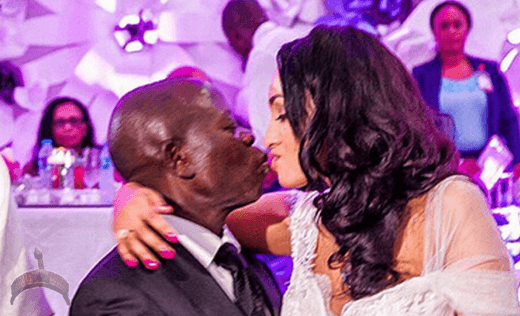
Governor Adams Oshiomhole and his bride, Iara, are no doubt one of the latest couples in town following their superlative wedding. Their love story has intrigued many Nigerians, leading to several speculations and rumours. Undeterred, Oshiomhole has been showering praises on his wife, who is obviously smitten with him. The governor who is not known to be fashion-forward is now seen looking more dapper. These days, Oshiomhole and Iara step out in matching outfits to public functions. The couple ensure that they are seen in fine apparels with similar colours.
Kosi Arugbo ni Gamani: 65 year old pregnant woman has given birth to quadruplets
Remember the 65 year old German woman who was pregnant with quadruplets? Well, she has given birth to the quadruplets, two and a half months prematurely through caesarean and all 4 babies have a ‘good chance of surviving’.
German woman Annegret Raunigk who already had 13 children has become the oldest woman alive to give birth to quadruplets. She had 13 children aged 9 to 44 by five different fathers and 7 grandchildren.
She gave birth to 3 boys named, Dries, Bence and Fjonn, and 1 girl named Neeta, born by caesarian on Tuesday after 26 weeks and they weigh between one pound and seven ounces and two pounds and two ounces.
